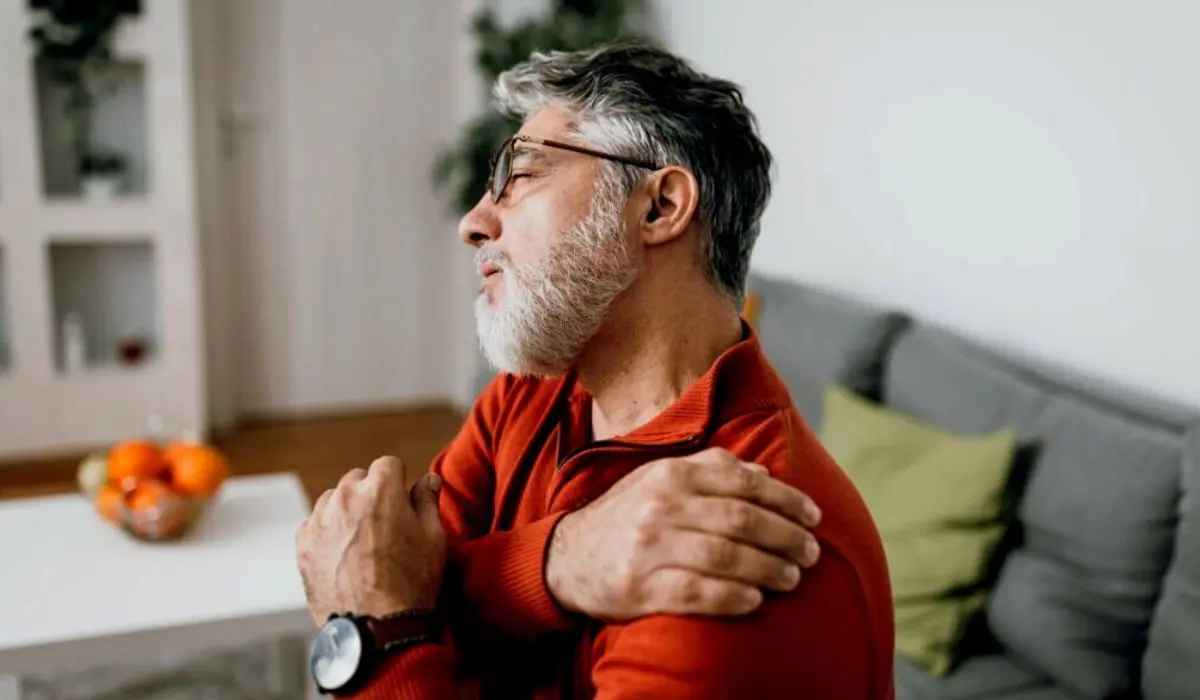Joint stiffness is a condition, as its name suggests, that your joints are stiff. Some people having this might feel that there is a restriction in moving or they cannot move it as easily as they used to. Some others might be able to move the joints without any pain, but they will have to apply more pressure to do that. In this article, let us look at the causes, symptoms, and treatment for joint stiffness.
Joint Stiffness Causes
The causes of joint stiffness can be different for different people. It can be due to a medical condition that they never saw coming, or it can be a never-expected injury. Sometimes it can be caused by their own poor lifestyle habits.

If you move very little during the day, then there is a high chance that you will get joint stiffness. If a day of yours requires you to be in the same position for many hours, then you make time to move more.
💠 Injuries
For some joint stiffness can be due to injuries that have affected joints, bones, cartilages, ligaments, tendons, or even muscles. This might cause inflammation in the joints that can result in restricting your motion.
💠 Fewer Movements
Lack of movement is one of the most common causes of joint stiffness. When your daily routine requires you to sit in a position for a long time, you need to find time to move more. Even if you have been wearing a sling or brace to immobilize you after an injury can also be the reason for joint stiffness
💠 Infections
Certain bacterial infections can also affect the mobility of the joints and cause pain.
💠 Conditions
If you have autoimmune conditions like rheumatoid arthritis, psoriatic arthritis, or ankylosing spondylitis, and having osteoarthritis can cause joint stiffness.
Joint Stiffness Symptoms
Here is a list of the most common symptoms of joint stiffness
- Joint pain
- Limited range of motion
- Feeling more pressure in joints
- Joint inflammation
- Hearing popping sounds when you move joints
- Joint numbness
- Enlarged joints
- Pain when you move joints
- Red coloration in joints with high temperature at the joints (extreme conditions)
Joint Stiffness Treatment
There are many ways of joint mobility enhancement and natural joint care. Some of the methods can be working out regularly, adding certain foods and nutrients into your diet, doing hot or cold compression at home, or going for physical therapy. Or you can get the help of external supportive aids, take medication, or try dietary supplements, or apply some gels. The surgical procedures are reserved for the extreme levels.
💠 Hot or cold compression
Placing hot pads or ice packs on the stiff joint can help ease the condition
💠 Physical therapy
Going to physical therapy can provide relief when you have joint stiffness. Remember that you have to be regular with that.
💠 Supportive aids
You can also use supportive aids such as braces, or canes. There are also some orthotic devices that can be used for this purpose.
💠 Lose Weight
If you are overweight or obese, you can try losing weight which will reduce the severity of your condition
💠 Topical Methods
You can use topical treatment methods such as gels or ointments and apply them externally.
💠 Medications
You can consult your healthcare provider and ask for medication to treat the condition
💠 Dietary Supplements
You can also try joint health supplements that contain Boswellia extract, Quercetin, Bromelain, MSM, Glucosamine Sulfate, and Chondroitin Sulfate
💠 Arthroscopy
A surgical procedure that repairs cartilage and bone chip damage.
💠 Joint Replacement
This is a surgical procedure and might be needed only at the worst and extreme conditions.
The Bottom Line
It is to be understood that joint stiffness is a common condition and it can happen to almost anyone with their age. It is not uncommon if you feel like you have stiff joints when you are over 30. However, the current lifestyle has made the condition common for younger people as well.
However, it does not mean that just because you have crossed your 30s or 40s you need to have joint stiffness. If you experience this, then you are to visit a doctor and get diagnosed with what is happening with your joints.
At the primary levels, you can start with at-home remedies, but you are not advised to do self-treatment. Before you start to do anything, get a thumbs up from your doctor. You can try to be healthy even before you have this condition, by eating well and working out regularly.
FAQs
The deficiency of vitamin D can be one of the main reasons for having stiff joints.
Usually, age-related joint stiffness starts when you are in your 30s and 40s.
You can include omega-3 fatty acids, flaxseed oil, and walnuts in your food.